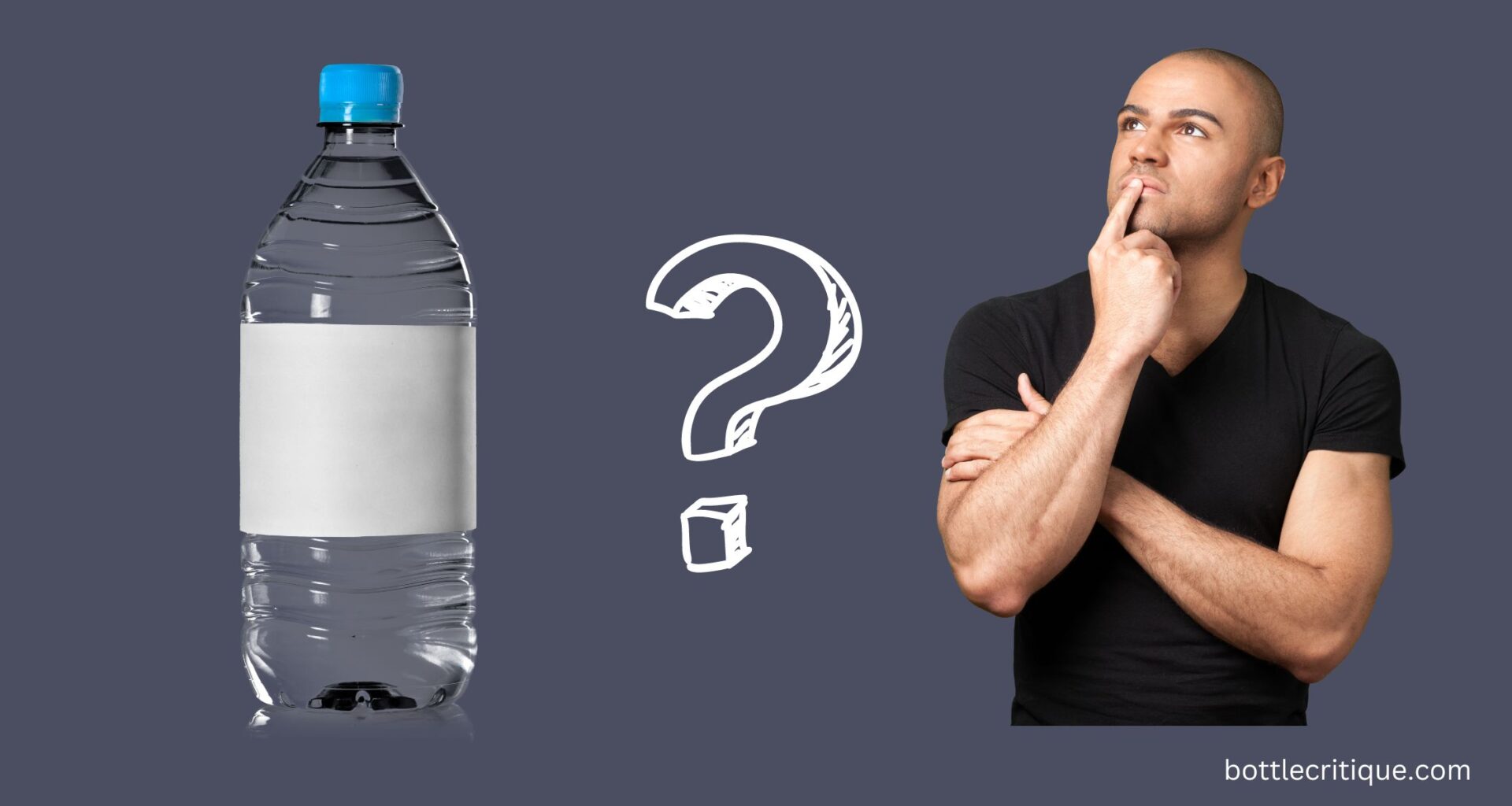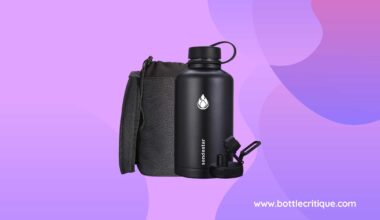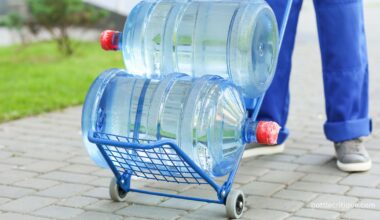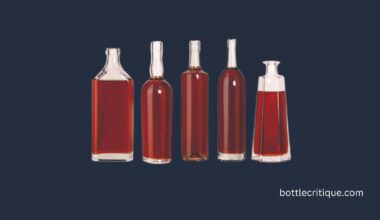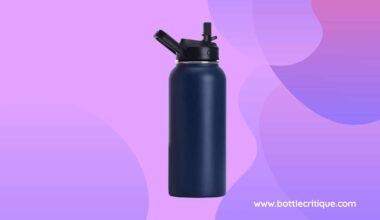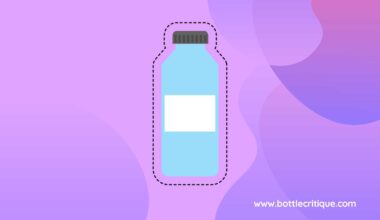Have you ever found an old water bottle lying around and wondered, Can water bottles expire? It’s a question that many of us ponder, and the answer might surprise you. In this article, we will delve deeper into the subject, providing you with the facts and hopefully settling your curiosity. Let’s dive right in!
Why water bottles are a popular choice for hydration
Why do so many people reach for a water bottle when they need to quench their thirst? The answer is simple: convenience and functionality.
Firstly, water bottles are designed for portability. They can fit perfectly in your handbag, backpack, or even in your car’s cup holder. This allows you to keep hydrated on-the-go, whether you’re running errands, heading to the gym, or simply driving to work.
Secondly, using a water bottle helps in tracking your water intake. Many water bottles come with measurement marks that help you know how much water you’re drinking daily.
- Convenience: Fits in your bag or cup holder, easy to carry around.
- Hydration Tracking: Comes with measurement marks to monitor water intake.
Lastly, they are eco-friendly. By using a reusable water bottle, you reduce the need for single-use plastic bottles, which helps in protecting our environment.
Remember: Staying hydrated is important for your health, and water bottles make it effortless to do so while also being environmentally friendly.
So, the next time you’re feeling parched, why not grab a water bottle? Not only will it quench your thirst, but you’ll also be doing your part to protect the environment.
What water bottles made of and how does it affect their lifespan
And how does the material impact their lifespan? Let’s find out.
Plastic Water Bottles
Most water bottles are made from a type of plastic called polyethylene terephthalate (PET). PET is lightweight and transparent, making it a popular choice. However, it’s not designed for long-term use and can start to degrade after a few uses.
Stainless Steel Water Bottles
Stainless steel water bottles, on the other hand, are incredibly durable. They can last for years, if not decades, without showing any signs of wear and tear. Plus, they don’t leach any chemicals into your water.
Glass Water Bottles
Glass water bottles are another great option. They’re naturally BPA-free and don’t degrade over time. However, they can break if dropped, so handle with care!
Aluminum Water Bottles
Aluminum bottles are lightweight and can be more durable than plastic. But they also have an inner lining that can degrade over time.
So, you see, the material of your water bottle plays a significant role in its lifespan. So next time you’re choosing a new bottle, consider what it’s made of. It could make a big difference!
How to tell if your water bottle has expired
Have you ever found an old water bottle and wondered if it’s still good to drink? Here’s how you can tell if your water bottle has expired:
Check the Expiry Date
Many bottled water companies include a “best by” date on their labels. Check this date to ensure your water is still fresh. Remember, this is not an expiration date, but the manufacturer’s assurance that the water will taste its best before this date.
Inspect the Bottle
Take a good look at the water bottle. If you notice any cracks or leaks, this could allow bacteria to enter and contaminate the water. Also, look for any signs of mold or algae, especially at the bottom of the bottle. If you see anything suspicious, it’s better to play it safe and throw it out.
Smell the Water
Give the water a sniff. If it has an unusual or off-putting odor, it’s advisable not to drink it. Water should not have a strong smell. If it does, this could indicate the presence of bacteria or other contaminates.
Taste the Water
If all the above checks out, take a small sip. If the water tastes off, do not continue drinking. Your senses of smell and taste are reliable indicators of whether water is safe to drink.
Always be mindful of the storage conditions of your water bottles. Excessive heat or sunlight can degrade the plastic over time, potentially leaching chemicals into the water. It’s always best to store your water bottles in a cool, dark place, away from strong odors or chemicals.
Remember, when in doubt, it’s best to err on the side of caution and not consume the water.
The risks of drinking from expired water bottles
Have you ever wondered if it’s safe to drink from an expired water bottle? You may be surprised to learn that while the water itself doesn’t really expire, the plastic bottle that it’s stored in can degrade over time. This can potentially lead to some health risks.
Degradation of Plastic
Plastic bottles are often made from polyethylene terephthalate (PET). Over time, this material can break down and release chemicals into the water. The risk is particularly higher if the bottle has been exposed to heat or has been stored for a long time.
Chemical Leaching
One of the main concerns with expired water bottles is the potential for chemical leaching. This is when chemicals from the plastic seep into the water. These chemicals may include antimony and bisphenol A (BPA), both of which can have negative effects on health.
- Antimony: It is a heavy metal that can cause symptoms such as nausea, vomiting and diarrhea when consumed in large quantities.
- BPA: This is a chemical that can interfere with the body’s hormones. It can lead to a range of health problems, including heart disease, infertility, and developmental issues in children.
Microbial Contamination
Besides chemical leaching, there’s also a risk of microbial contamination. This is especially true if the water bottle has been opened and then stored for a long time. In such cases, bacteria or mold can grow, causing the water to become unsafe to drink.
Note: It’s always best to avoid drinking from plastic water bottles that have passed their expiration date. Instead, opt for fresh bottled water or better yet, use a refillable bottle made from safer materials like stainless steel or glass.
So, while the water itself may not expire, the bottle it comes in certainly can. And when it does, it can pose a number of risks to your health. So, it’s always best to err on the side of caution when it comes to drinking from expired water bottles.
How to properly store your water bottles to extend their lifespan
Proper storage of water bottles can significantly extend their lifespan. This has a direct impact not only on your wallet, but also on the environment. So, how can you store your water bottles the right way? Let’s see!
1. Keep them Clean
First off, cleanliness is crucial. Always rinse your bottle after use, ensuring no residue is left. A mixture of warm water and a small amount of mild dish soap works well for this. For those hard-to-reach areas, a bottle brush can be helpful.
2. Store them Dry
After cleaning, it’s essential to thoroughly dry your bottles before storing. Remaining moisture can lead to bacterial growth, which can shorten their lifespan and also pose health risks. Leave the bottles upside down in a dish rack or towel to drain and dry completely.
3. Avoid Extreme Temperatures
Avoid storing your bottles in places with extreme temperatures, like a hot car or freezer. These conditions can cause the plastic to degrade over time. Instead, store them in a cool, dry place.
4. Keep them Closed
When not in use, make sure to keep your bottles closed. This prevents dust and insects from getting inside and contaminating your bottle.
5. Reduce Exposure to Sunlight
Sunlight can also cause plastic bottles to degrade. Thus, it’s advisable to store your bottles in a dark place or at least out of direct sunlight.
By adhering to these simple steps, you can significantly improve the longevity of your water bottles, and ensure they remain safe and efficient for use. Remember, every bottle saved is a step towards a greener planet. So, let’s do our part!
Alternatives to single-use plastic water bottles
It’s time we consider some environmentally friendly alternatives to single-use plastic water bottles. Not only will this help save our environment, but it can also save us some money in the long run.
Reusable Water Bottles
Reusable water bottles are a fantastic alternative. They come in different shapes, sizes, and materials, such as glass, stainless steel, and BPA-free plastic. They’re designed to last for years, making them a more sustainable choice.
Water Filter Pitchers
Ever thought about using water filter pitchers? These pitchers filter contaminants out of tap water, ensuring that you’re drinking clean, safe water. They are cost-effective and reduce the need for single-use plastic bottles.
Water Purification Tablets
For those who travel or engage in outdoor activities like camping, water purification tablets could be a lifesaver. These tablets can purify water from natural sources, making it safe to drink.
Install a Home Water Filtration System
Why not take a big leap and opt to install a home water filtration system? This way, you can have clean, filtered water directly from your faucet. It is an investment, but it’s one that pays off in the long run.
Conclusion
To wrap it up, there are plenty of alternatives to single-use plastic water bottles. It’s all about finding what works best for you and your lifestyle. Remember, each small step towards reducing plastic waste counts!
Sustainable and eco-friendly water bottle options
Water bottles themselves don’t expire, but they can degrade over time, especially if they’re made from certain materials. This isn’t just bad for your health – it’s bad for the planet, too. Thankfully, there are plenty of sustainable and eco-friendly water bottle options out there. Let’s take a look.
Stainless Steel Water Bottles
The first option to consider is stainless steel. Not only are stainless steel water bottles durable and long-lasting, but they’re also recyclable when they’ve finally run their course.
“Stainless steel water bottles can last for years and are 100% recyclable, making them a great option for both your health and the environment.”
Glass Water Bottles
Another good option is glass. Glass water bottles don’t leach any harmful chemicals, and they’re also fully recyclable. The only downside is that they can be a bit more fragile.
Bamboo Water Bottles
Finally, we have bamboo water bottles. These are a great eco-friendly option as bamboo is a renewable resource. Plus, they’ve got a unique aesthetic that sets them apart.
| Type | Sustainability | Durability |
|---|---|---|
| Stainless Steel | High | High |
| Glass | High | Medium |
| Bamboo | High | Low to Medium |
So, next time you’re shopping for a new water bottle, consider one of these eco-friendly options. They’re better for your health, better for the environment, and can help you make a positive impact on the planet. What’s not to love?
The impact of water bottles on the environment
Ever considered the environmental impact of your water bottle? It’s high time we address this. Water bottles, especially those made of plastic, can leave a significant ecological footprint.
The Plastic Problem
It’s no secret that plastic is a major environmental hazard. But did you know that plastic water bottles are one of the main contributors to this problem?
- Non-Biodegradable: Plastic bottles take hundreds of years to decompose, leading to environmental pollution and harm to wildlife.
- Resource Intensive: The production process of plastic bottles consumes vast amounts of water and energy, contributing to emissions and climate change.
Waste and Overconsumption
While recycling is an option, not all plastic bottles end up in recycling bins. In fact, most find their way to landfills or, worse, our oceans.
It’s estimated that only about 30% of plastic water bottles are recycled, while the rest end up as waste.
Alternatives to Plastic Bottles
So, what can we do to minimize this impact? Luckily, there are several alternatives:
- Reusable Water Bottles: Made from materials such as stainless steel or glass, these bottles can be used multiple times and significantly reduce waste.
- Water Filters: Installing a water filter at home can make tap water safe to drink and eliminate the need for bottled water.
- Public Water Fountains: Encouraging the usage of public water fountains can also help reduce the demand for bottled water.
In conclusion, while the water inside the bottle doesn’t expire, the environmental effects of the bottles themselves are long-lasting. Hence, it’s crucial to consider alternatives and make eco-friendly choices whenever possible.
Tips for staying hydrated without relying on water bottles
You may wonder, “If water bottles can potentially degrade over time, how else can I stay hydrated?” Luckily, there are several practical alternatives to relying heavily on bottled water, which are both environmentally friendly and convenient for maintaining your hydration levels.
Use a Reusable Water Bottle
One of the most effective ways to stay hydrated is by using a reusable water bottle. Not only do these bottles help reduce plastic waste, they’re also designed to last for a long time, eliminating concerns over expiration. Be sure to clean it regularly to maintain its longevity and prevent any bacterial growth.
Opt for Filtered Tap Water
Another great option is to drink filtered tap water. It’s readily available and reduces reliance on disposable plastic bottles. You can use a water filter jug or install a tap filter for constant access to clean, filtered water.
Hydrate Through Your Diet
Did you know that certain foods can also contribute to your hydration? Fruits and vegetables like cucumbers, watermelon, and oranges have high water content that can supplement your fluid intake. So, don’t forget to incorporate these into your diet as well.
Remember, staying hydrated is not just about drinking water. It’s also about making smart choices that contribute to your overall hydration.
Drink Other Fluids
In addition to water, other fluids like herbal teas, fresh fruit juices, and even soup can help to keep you hydrated. Be mindful, however, of beverages that are high in sugar or caffeine, as these can actually lead to dehydration.
- Herbal teas are a warm and comforting way to stay hydrated.
- Fresh fruit juices not only hydrate but also provide essential nutrients.
- Soups and broths are particularly hydrating, especially during colder months.
By diversifying your hydration sources, you can maintain your hydration levels while minimizing your reliance on plastic water bottles. It’s a win-win for both you and the environment!
FAQs about water bottle expiration dates
Let’s dig deeper into some of the common concerns surrounding water bottle expiration dates. We’ll answer some frequently asked questions that might help clear up any confusion you might have.
1. Do plastic water bottles expire?
Plastic water bottles themselves do not expire. However, the quality of the water stored in them can degrade over time, especially if exposed to heat or sunlight. Storing bottles in a cool, dark place can help extend the shelf life of the water inside.
2. How long can I keep bottled water?
The U.S. Food and Drug Administration (FDA), which regulates bottled water, considers it to have an indefinite shelf life if it’s produced in accordance with regulations and remains unopened. However, bottled water companies often put a two-year expiration date on their products for retail purposes.
3. What happens if I drink expired bottled water?
Drinking bottled water past its printed expiration date is unlikely to cause any health issues. However, the taste might be slightly off due to plastic leaching or bacterial growth if the bottle has been stored improperly.
4. Can I reuse plastic water bottles?
While it’s not recommended to continuously reuse single-use plastic water bottles because they can degrade and leach chemicals, they can be safely reused a few times if they’re cleaned properly and not exposed to heat.
5. Why do water bottles have an expiration date?
It’s more of a legal requirement than a measure of the water’s safety. Laws in several states require all consumables, including water, to carry an expiration date. The date also helps stores rotate and manage their inventory effectively.
Remember, the key to safe bottled water consumption is proper storage. Keep your water bottles in a cool, dark place and consume within the recommended time frame for the best taste and quality.
